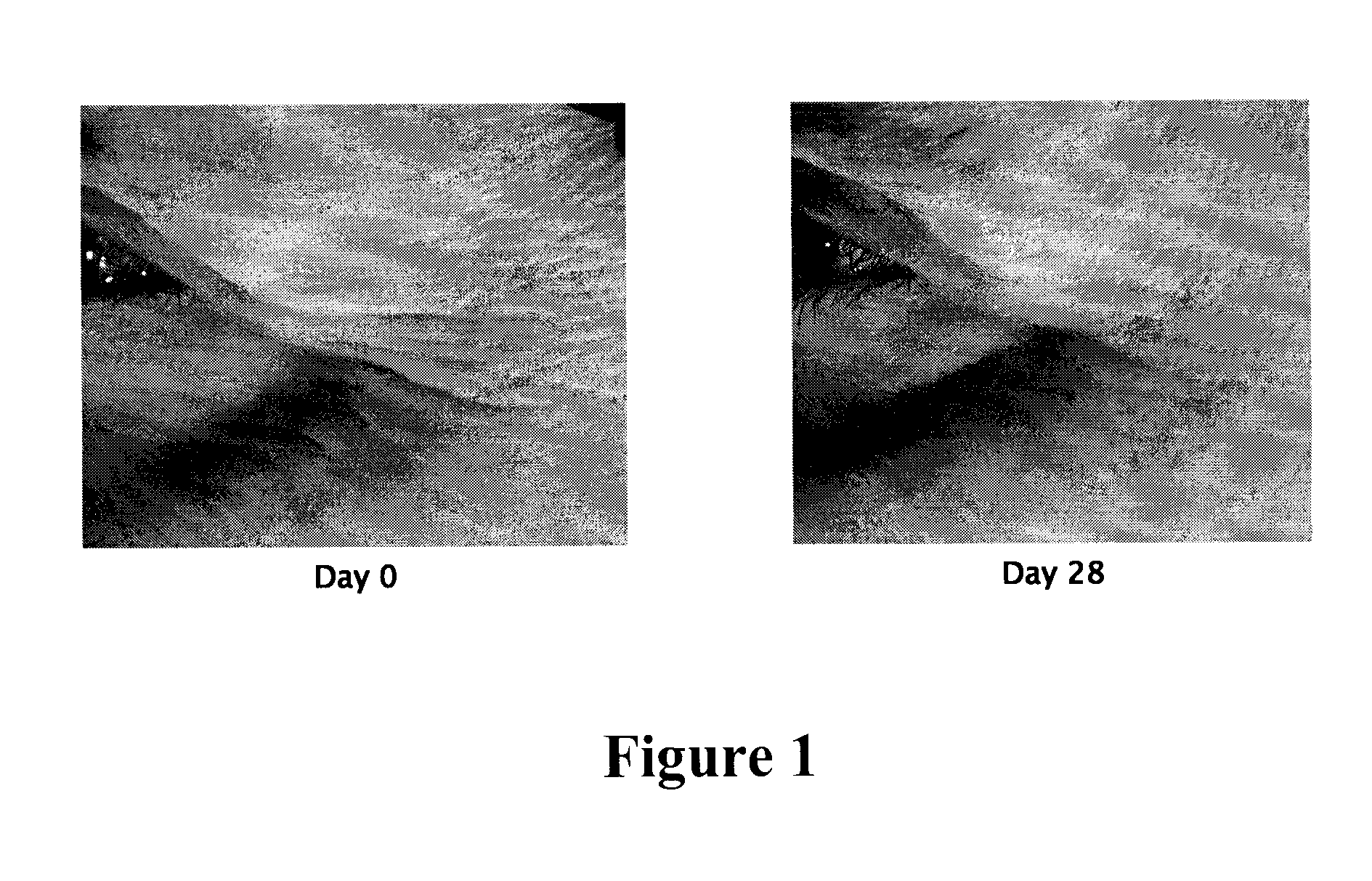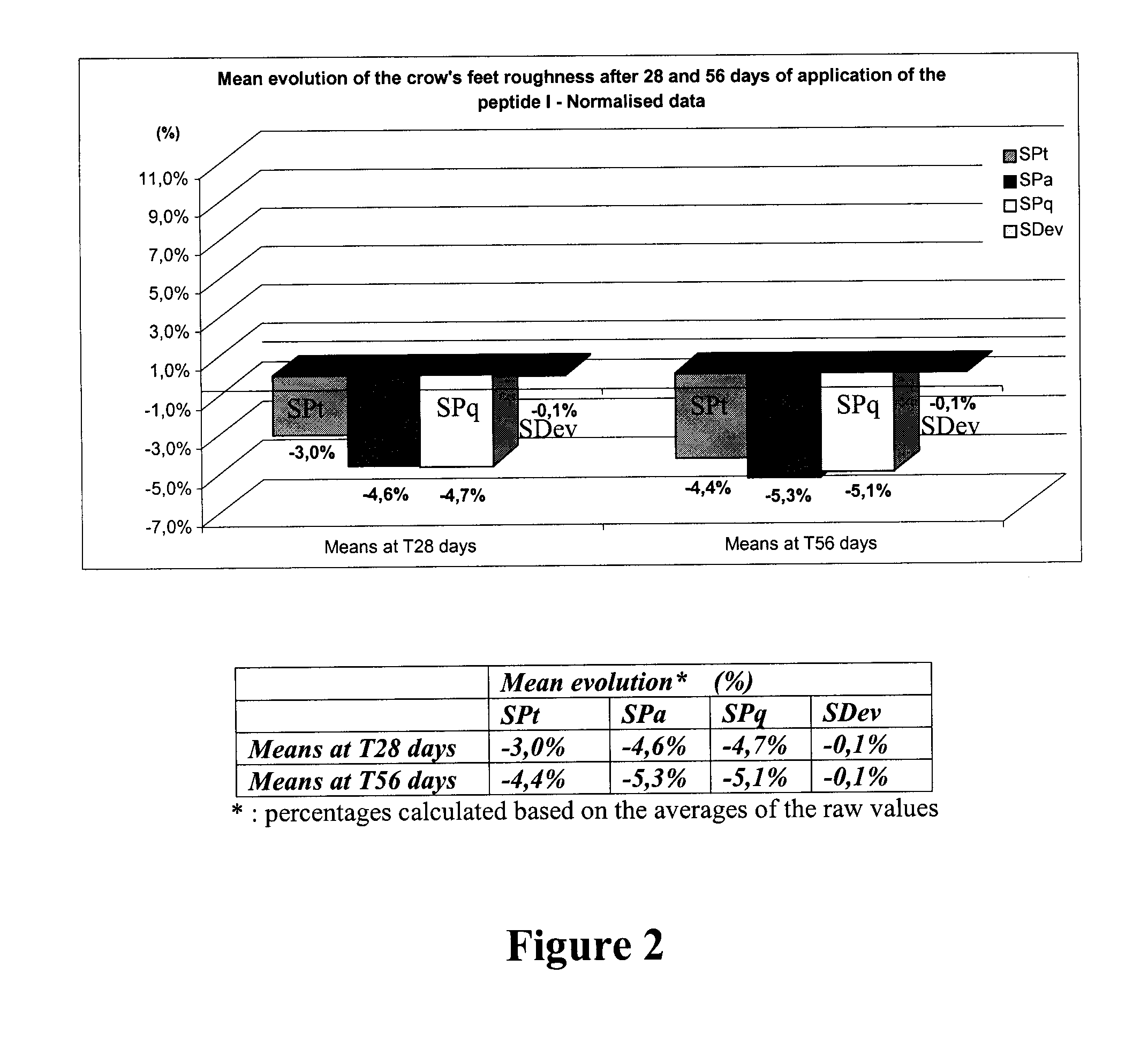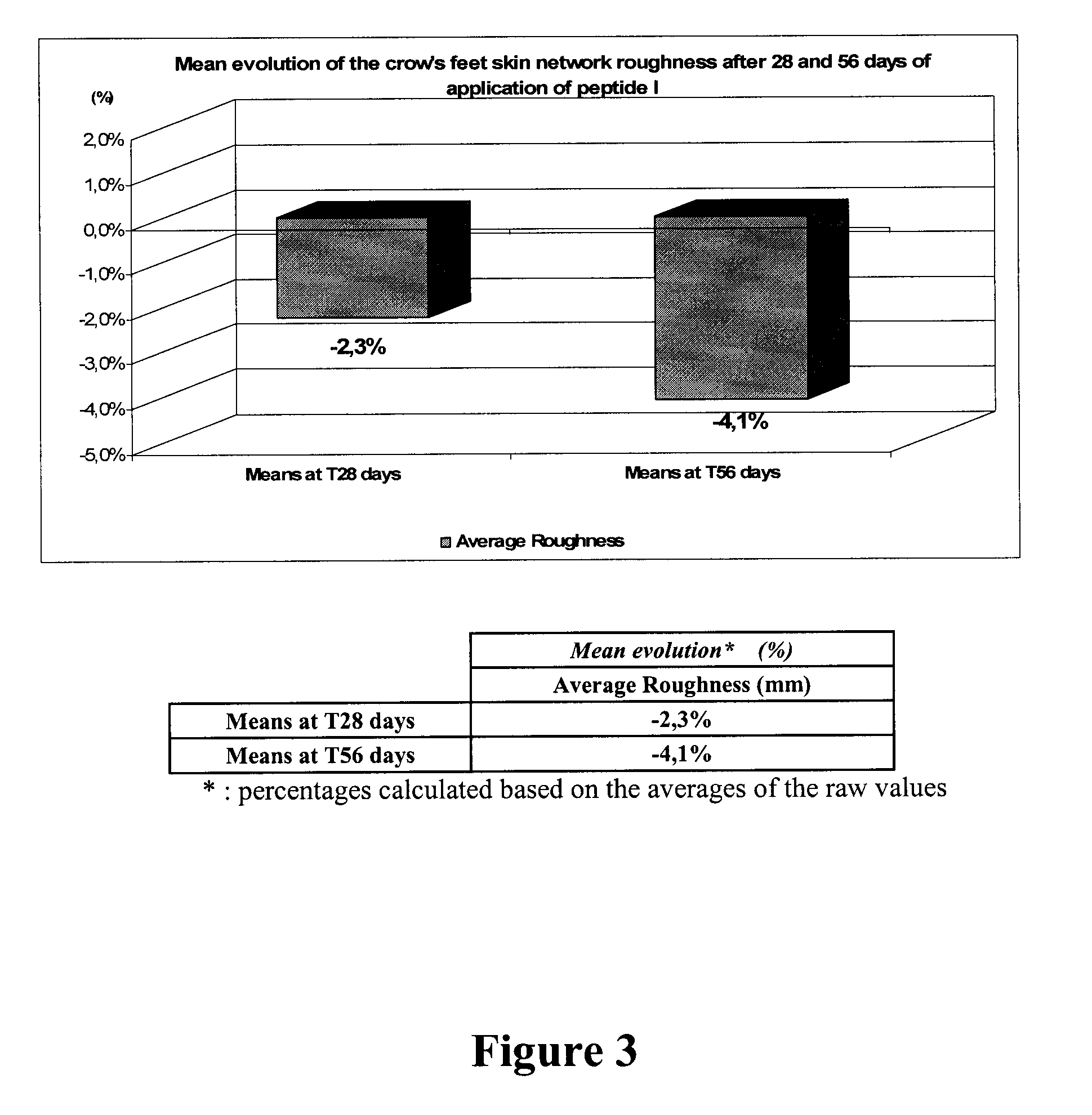Compounds, use thereof in cosmetic and cosmeceutic applications, and compositions comprising same
a technology of cosmeceutical applications and compounds, applied in the field of cosmetic and cosmeceutical compositions, dermatological and pharmaceutical compositions and food supplements, can solve the problems of weakening of the epidermis-dermis interface, insufficient fibroblast metabolism, and traditional approaches based on the supply of keratinocytes
- Summary
- Abstract
- Description
- Claims
- Application Information
AI Technical Summary
Benefits of technology
Problems solved by technology
Method used
Image
Examples
example 1
Synthesis of CH3—(CH2)4—CO-Lys-Gly-His-Lys-NH2 (peptide I, SEQ ID NO: 1)
[0144]Peptide I was synthesized on a solid support with a Rink amide resin whose functionalization is between 0.3 and 0.6 mmole / g of resin. The Rink amid resin was first prepared by washing with Dimethylformamide (DMF) (2 washings), then followed by the deprotection step described below. For each amino acid to be coupled, the following steps were repeated: coupling the amino acid, washing the resin, deprotecting the main chain's amino function, and then washing the resin again. The four amino acid residues comprised in the resulting peptide were in the L configuration.
[0145]Coupling: two benzotriazole-1-yl-oxy-tris-(dimethylamino)-phosphonium hexafluorophosphate (BOP) (or 2-(1H-benzotriazol-1-yl) 1,1,3,3-tetramethyluronium hexafluorophosphate, HBTU) equivalents, two diispropylethylamine (DIEA) (or N-methylmorpholine, NMM) equivalents and two 9-fluorenylméthoxycarbonyl (Fmoc)-AA-OH equivalents, for 2 hours in DMF...
example 2
Synthesis of CH3—(CH2)6—CO-Lys-Gly-His-Lys-NH2 (peptide II; SEQ ID NO: 2)
[0152]Peptide II was synthesized using the same procedure as that described in Example 1, except that an octanoic acid, instead of an hexanoic acid, was used for coupling onto the N-terminal function of the first lysine residue. The four amino acid residues comprised in the resulting peptide were in the L configuration.
example 3
Synthesis of CH3—(CH2)2—CO-Lys-Gly-His-Lys-NH2 (peptide III; SEQ ID NO: 3)
[0153]Peptide III was synthesized using the same procedure as that described in Example 1, except that a butanoic acid, instead of an hexanoic acid, was used for coupling onto the N-terminal function of the first lysine residue. The four amino acid residues comprised in the resulting peptide were in the L configuration.
PUM
| Property | Measurement | Unit |
|---|---|---|
| concentrations | aaaaa | aaaaa |
| composition | aaaaa | aaaaa |
| elasticity | aaaaa | aaaaa |
Abstract
Description
Claims
Application Information
 Login to View More
Login to View More - R&D
- Intellectual Property
- Life Sciences
- Materials
- Tech Scout
- Unparalleled Data Quality
- Higher Quality Content
- 60% Fewer Hallucinations
Browse by: Latest US Patents, China's latest patents, Technical Efficacy Thesaurus, Application Domain, Technology Topic, Popular Technical Reports.
© 2025 PatSnap. All rights reserved.Legal|Privacy policy|Modern Slavery Act Transparency Statement|Sitemap|About US| Contact US: help@patsnap.com



